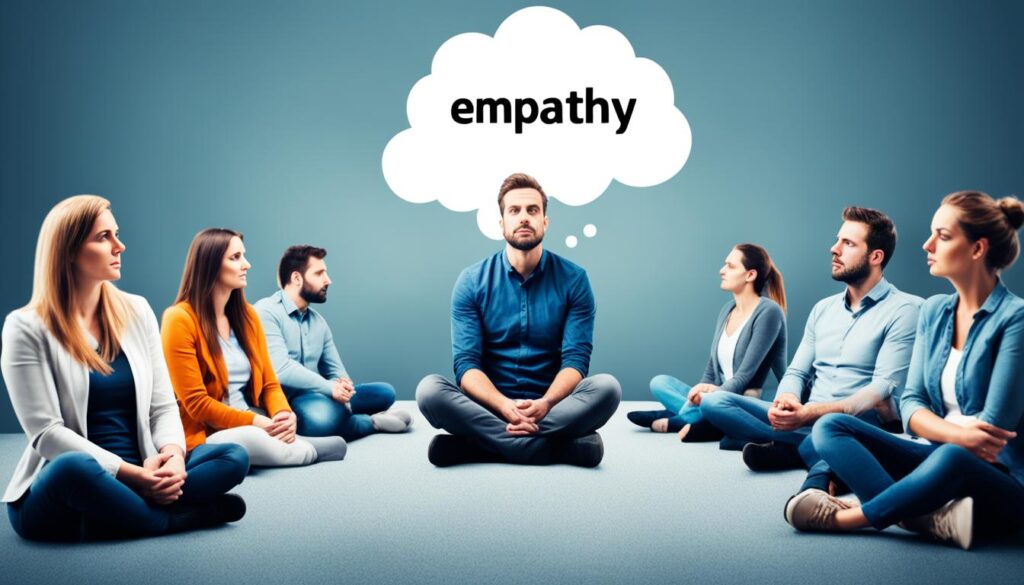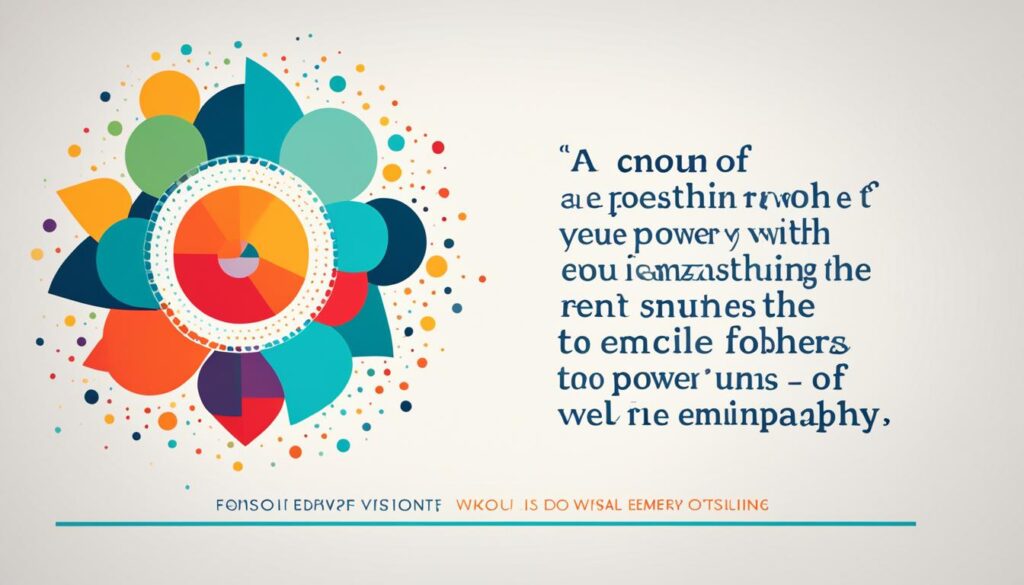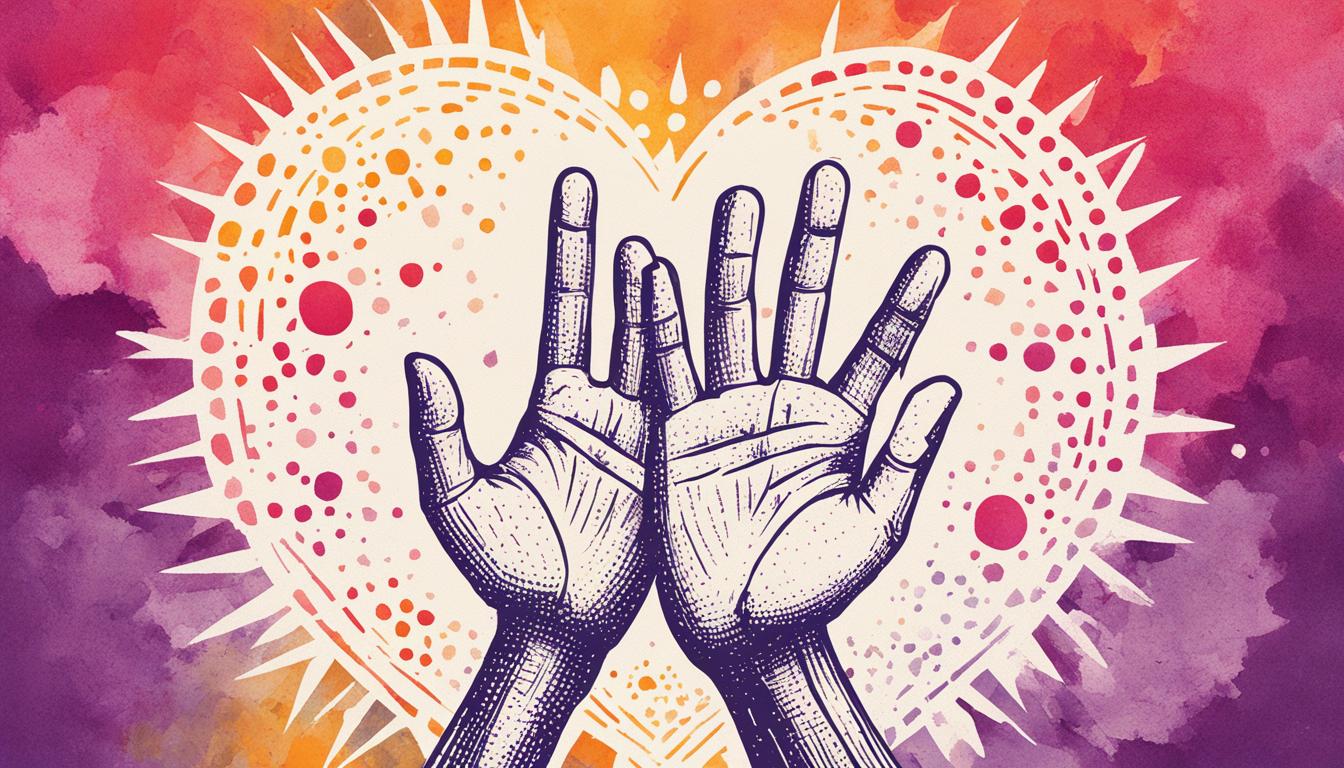“Thousands of candles can be lighted from a single candle, and the life of the candle will not be shortened. Happiness never decreases by being shared.” – Buddha
Empathy is a powerful force that can transform lives. It allows us to understand and connect with others on a deeper level, to share in their joys and sorrows. But often, we overlook the importance of empathy in our daily lives. We rush through our interactions, quick to judge, assuming we know what someone else is going through. But the truth is, we never really know.
Each individual carries their own unique burdens, struggles, and triumphs. Behind every smile, there may be hidden pain. Behind every success, there may be unseen challenges. By acknowledging that we don’t know what someone is going through, we open ourselves up to a world of empathy and kindness instead of judgment and assumptions.
Small acts of empathy can make a profound difference in someone’s life. A listening ear, a kind word, a gentle touch – these seemingly simple gestures can bring comfort to someone in need. They can remind them that they are not alone, that they are seen, heard, and cared for.
So, let us strive to be more empathetic in our interactions. Let us be mindful of the fact that we never really know what someone is going through. And let us choose empathy, kindness, and compassion over judgment.
Key Takeaways:
- Empathy allows us to understand and connect with others on a deeper level.
- We never truly know what someone else is going through.
- Small acts of empathy can make a profound difference in someone’s life.
- Choosing empathy and kindness over judgment can create a more compassionate world.
- By sharing happiness and supporting others, we increase our own happiness.
Understanding the Meaning of “You Never Know What Someone Is Going Through”
When we say “you never know what someone is going through,” it serves as a reminder to acknowledge that everyone has their own hidden experiences and challenges. It is unfair to make assumptions about others based on our limited knowledge of them. By recognizing the gaps in our understanding, we can choose empathy over judgment, leading to a world of kindness and compassion.
Our mental health awareness should extend beyond recognizing our own struggles; it should encompass recognizing the struggles of those around us. Understanding others and their unique circumstances is the first step towards fostering empathy and building meaningful connections. As Maya Angelou said, ““I think we all have empathy. We may not have enough courage to display it.”

Kindness and compassion are powerful tools that can make a significant difference to someone who is struggling. A simple act of kindness may brighten someone’s day, provide comfort, or restore their faith in humanity. As Desmond Tutu said, ““Do your little bit of good where you are; it’s those little bits of good put together that overwhelm the world.”
Why Mental Health Awareness Matters
Mental health awareness is essential because it helps us realize that anyone we cross paths with could be fighting an internal battle. We cannot see the invisible scars or the weight that someone carries within. Being mindful of this reality helps us to approach others with understanding, empathy, and respect.
By embracing mental health awareness, we create a world where people feel safe to share their struggles openly. It encourages open conversations, reduces stigma, and paves the way for greater support and compassion. When we understand that mental health is an integral part of overall well-being, we can offer the understanding and support that others may desperately need.
Remember, a kind word or a listening ear can make all the difference. Let’s strive to be the source of comfort and support for those in need. As Dr. Charles Figley once said, “Compassion fatigue is when you run out of empathy. We need to teach empathy as a skill so that people can give more empathy, not less.
Key Takeaways
- “You never know what someone is going through” means recognizing that everyone has hidden experiences and challenges.
- Mental health awareness helps us to approach others with empathy and compassion.
- Small acts of kindness can have a profound impact on someone who is struggling.
- Understanding others and their unique circumstances fosters empathy and builds meaningful connections.
Ways to Show Empathy to Someone Who’s Struggling
Empathy is a powerful tool in connecting with others and offering support. When someone is going through a difficult time, showing empathy can make a significant difference in their life. Here are some ways you can demonstrate empathy and provide comfort to those who are struggling:
1. Active Listening
“Listening is often the only thing needed to help someone.”
Active listening involves fully engaging with the person and their story. Give them your undivided attention, maintain eye contact, and avoid interrupting. Show that you genuinely care by nodding, offering prompts, and reflecting back their feelings. By actively listening, you create a safe space for them to express their emotions and feel understood.
2. Being Vulnerable
“Vulnerability is not winning or losing; it’s having the courage to show up and be seen when we have no control over the outcome.”
Being vulnerable means opening up about your own feelings and experiences. When you share your own struggles, it allows the other person to feel less alone and more comfortable sharing their own. It’s a way to create a connection based on shared empathy and understanding.
3. Asking How You Can Help
“Empathy means acknowledging someone’s pain and asking how you can ease it.”
Show your support by asking the person how you can help. Sometimes, all they need is someone to talk to or a shoulder to lean on. Other times, they may appreciate practical assistance such as running errands or cooking a meal. By offering a helping hand, you let them know that they are not alone in their struggles.
Remember, small acts of empathy can make a significant impact on someone’s well-being. By actively listening, being vulnerable, and offering your help, you can demonstrate kindness and support to those who need it the most.

| Benefits of Showing Empathy | Actions to Demonstrate Empathy |
|---|---|
| 1. Creates a sense of connection and understanding | 1. Practice active listening |
| 2. Builds trust and strengthens relationships | 2. Be vulnerable and share personal experiences |
| 3. Provides emotional support and comfort | 3. Ask how you can help |
| 4. Reduces feelings of isolation and loneliness |
Being an Understanding Salesperson and Building Better Sales Relationships
In the world of sales, building strong relationships with clients is crucial for success. One essential aspect of fostering these connections is being an understanding salesperson. By empathizing with your clients’ needs and challenges, you cultivate trust and loyalty. Understanding others allows you to better address their concerns and deliver tailored solutions. Here are some key practices to help you become an understanding salesperson and build better sales relationships:
1. Connect with Emotions
When interacting with clients, take the time to understand their emotions. Empathize with their experiences and show genuine concern for their well-being. By acknowledging their feelings and validating their perspectives, you create a sense of trust and rapport. This emotional connection contributes to a stronger relationship built on understanding and support.
2. Ask Clarifying Questions
To truly understand your clients’ needs and expectations, ask clarifying questions. This demonstrates your commitment to comprehending their unique situation and ensures that you have a complete understanding of their requirements. Listening attentively and seeking clarification also shows that you value their input, fostering a collaborative and supportive sales process.
3. Develop Self-Awareness
Being self-aware is essential for salespeople seeking to understand others. When you are aware of your own biases, assumptions, and emotions, you can better manage them and prevent them from clouding your judgment. Reflect on your own experiences and perspectives, as this awareness allows you to approach sales interactions with empathy and objectivity.
4. Take the Time to Learn About Your Customer
To build a strong sales relationship, invest time in getting to know your customer as an individual. Learn about their background, interests, and challenges. Understanding their unique circumstances allows you to personalize your approach and offer tailored solutions. Taking the time to gather this information demonstrates courtesy, commitment, and a genuine interest in helping them succeed.

By implementing these practices, you can become an understanding salesperson who builds better sales relationships. Remember, being empathetic and supportive are the keys to success in sales. When you genuinely understand your clients’ needs and go the extra mile to address them, you create a positive and lasting impression. By nurturing strong relationships, you not only enhance your sales outcomes but also establish a reputation as a trusted and compassionate professional.
The Importance of Being Understanding of Others’ Struggles
In our journey through life, it is essential to cultivate understanding and compassion for others. Each person carries their own burdens and battles, even if they may not be visible to the naked eye. It is important to remember that appearances can be deceiving, and it is unfair to judge based solely on what meets the eye.
By choosing to offer understanding instead of judgment, we have the power to create a supportive and uplifting environment for those around us. When we take the time to listen and empathize, we demonstrate our commitment to mental health awareness and the well-being of others.
As the renowned author Aesop once said, “No act of kindness, no matter how small, is ever wasted.” These words resonate deeply because they remind us that even the smallest gestures of kindness can make a significant impact on someone’s life. Let us not underestimate the power of a smile, a comforting word, or a helping hand.
To truly understand others, we must be attuned to their struggles. It requires us to be observant of the signs that may indicate someone is going through a difficult time. These signs can manifest as changes in behavior, withdrawal from social interactions, or a noticeable decrease in enthusiasm and energy.
By being attentive and sensitive to these signs, we open the door for meaningful conversations and the opportunity to offer support. Sometimes, all it takes is a compassionate ear and a reassuring presence to make a genuine difference in someone’s life.
“Be kind, for everyone you meet is fighting a battle you know nothing about.” – Wendy Mass
Understanding others’ struggles not only benefits individuals but also contributes to the creation of a more empathetic and caring society. It cultivates a safe space where people feel comfortable and supported, knowing that they are not alone in their journey.
Ways to Foster Understanding and Compassion
- Practice active listening: Give your full attention to others when they are sharing their experiences and emotions. Be present in the moment and show genuine interest.
- Empathize with vulnerability: Acknowledge your own emotions and vulnerabilities, which will enable you to understand and connect with the experiences of others.
- Ask open-ended questions: Encourage others to express their thoughts and feelings by asking questions that invite deeper conversations.
- Offer support and assistance: Extend a helping hand and let others know that you are there to support them in any way you can.
- Challenge your assumptions: Avoid making snap judgments and challenge your preconceived notions. Embrace curiosity and strive to learn more about others’ experiences.
The journey towards understanding others’ struggles is a continuous process that requires empathy, an open heart, and a willingness to learn. Let us strive to be compassionate, kind, and supportive in our interactions, as we never truly know the battles that others are fighting.

| Benefits of Understanding Others’ Struggles | Actions to Foster Understanding |
|---|---|
| Creates a caring and empathetic society | Practice active listening |
| Reduces misunderstandings and judgments | Empathize with vulnerability |
| Builds stronger relationships and support systems | Ask open-ended questions |
| Offers solace and comfort to those in need | Offer support and assistance |
| Fosters a sense of belonging and acceptance | Challenge your assumptions |
Conclusion
We never fully know what someone else is going through. Their struggles and challenges are often hidden from view. It is crucial to cultivate mental health awareness and lead with empathy, compassion, and kindness. As the famous quote goes, “Empathy is seeing with the eyes of another, listening with the ears of another, and feeling with the heart of another.”
Small acts of understanding can make a significant impact on someone’s life. Whether it’s offering a listening ear or a kind word, supporting others can create a ripple effect of positivity. Remember, “In a world where you can be anything, be kind.”
By being understanding and supportive, we contribute to fostering a more compassionate and caring world. As we navigate our own journeys, let us remember the power of empathy and the importance of supporting one another. Together, we can create a society where mental health is prioritized, and everyone feels seen, heard, and valued.
FAQ
Why is empathy and kindness important?
Showing empathy and kindness is crucial because we never truly know what someone else is experiencing. Everyone has their own struggles, successes, needs, and desires. By acknowledging that we don’t know what someone is going through, we can show empathy and kindness instead of judgment. Small acts of empathy can make a significant difference to someone in need.
What does it mean when we say "you never know what someone is going through"?
When we say “you never know what someone is going through,” it means acknowledging that everyone has hidden experiences and challenges. It is unfair to assume things about others based on our limited knowledge of them. By recognizing our lack of understanding, we can show empathy instead of judgment. Small acts of kindness can mean the world to someone who is struggling.
How can we show empathy to someone who is struggling?
Active listening is a powerful way to show empathy. By fully engaging with what the person is saying, we demonstrate that we care and connect on a deeper level. Being vulnerable and accepting our own feelings allows us to understand the emotions of others. Asking how we can help shows support and lets the person know they are not alone. These small acts of empathy can make a difference to someone in need.
How can being understanding benefit salespeople?
In sales, being understanding is crucial for building strong relationships with clients. Connecting with their emotions and asking clarifying questions shows empathy and trust. Developing self-awareness helps salespeople respond from a place of understanding. Taking the time to learn about the customer before selling shows courtesy and commitment to finding a solution. By being understanding, salespeople can create better sales relationships.
Why is it important to offer understanding and compassion to others?
It is vital to offer understanding and compassion to others. As humans, we all struggle in our own ways. Making assumptions based on appearances can lead to misunderstandings. By offering understanding instead of judgment, we can support and uplift one another. Recognizing the signs that someone may be going through something difficult allows us to reach out and offer help. Ultimately, understanding and compassion create a more supportive and caring society.

